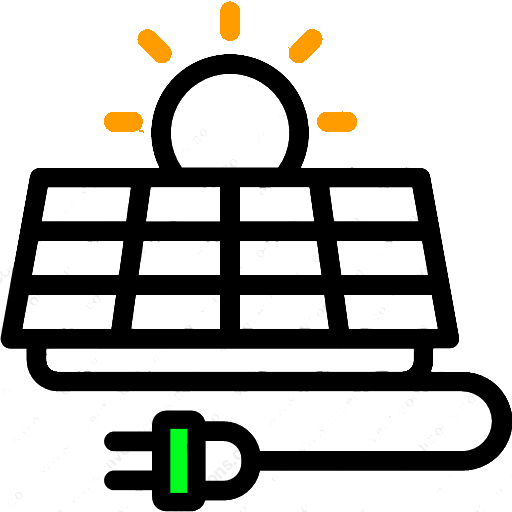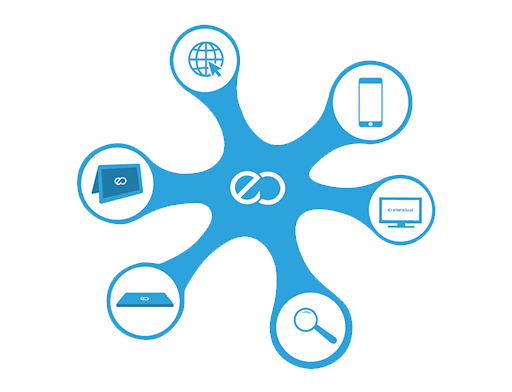1.What is a Sourcing Agent or Sourcing Company?
A Sourcing Agent or Sourcing Company is a professional service provider that specializes in assisting businesses in their procurement activities. They work on behalf of their clients to help them find, evaluate, and select suitable suppliers from other countries. They have a good understanding of the local market and can effectively communicate with the suppliers to meet the client’s requirements. Some of the key services provided by sourcing agents or companies include:
1.Supplier identification: They help to identify new suppliers that meet the client’s needs and requirements. They use their network and expertise to find reliable suppliers.
2.Supplier evaluation: They evaluate the potential suppliers based on criteria such as quality, price, reliability, and delivery capabilities.
3.Negotiation: They negotiate with the suppliers on behalf of their clients, ensuring they get the best possible deal.
4.Quality control: They have a team of professionals who conduct quality control inspections, ensuring that the products meet the required quality standards.
5.Logistics: They assist in arranging for the transportation of the goods from the supplier’s location to the client.
6.After-sales service: They provide after-sales service and support to the client to ensure that they are satisfied with the products and services provided.
Overall, sourcing agents or companies play a significant role in helping businesses to find the right suppliers and ensuring a smooth procurement process.
2. Sourcing Agent VS Sourcing Company
Sourcing agents and sourcing companies both provide services related to the outsourced procurement of products or manufacturing. Here are some differences between the two:
1.Scope of Services: Sourcing companies offer a wider range of services compared to sourcing agents. Sourcing companies offer end-to-end supply chain management, which includes product development, logistics, quality control, and legal compliance. On the other hand, sourcing agents typically focus on specific parts of the process, including supplier identification, negotiation, and quality control.
2.Size of the Vendor Network: Sourcing companies usually have a larger vendor network compared to sourcing agents. Sourcing companies work with multiple suppliers and manufacturers, while sourcing agents usually work with a specific set of suppliers.
3.Fees: Sourcing companies typically charge higher fees compared to sourcing agents because they offer a broader range of services. Sourcing agents charge fees based on commissions for each transaction.
4.Level of Control: Sourcing companies offer a higher level of control over the supply chain compared to sourcing agents. They have the ability to monitor and manage the entire process, from product development to delivery. Sourcing agents may have limited control and are dependent on the supplier for quality control and delivery timelines.
The decision between whether to use a sourcing agent or a sourcing company depends on the specific needs and requirements of the business. If the business has limited resources and wants to focus on specific parts of the process, such as negotiation with suppliers, then a sourcing agent may be the better option. If the business requires end-to-end supply chain management, then a sourcing company may be the better option.
3. What Services do Sourcing Agencies Provide?
Sourcing agencies provide a range of services to businesses looking to outsource their manufacturing or production processes. Here are some of the services that sourcing agencies typically provide:
1.Supplier Identification: Sourcing agencies will identify and vet potential suppliers based on your requirements and specifications.
2.Quality Control: They will conduct quality checks on the suppliers’ products before they are shipped to you.
3.Negotiation: Sourcing agencies will negotiate terms and prices with the suppliers on your behalf.
4.Factory Visits: They can visit the factories to ensure that the production process is running smoothly and the products meet your standards.
5.Logistics: They will ensure that the products are shipped and delivered as per the agreed terms.
6.Supply Chain Management: Sourcing agencies can manage the entire supply chain, including inventory management, monitoring demand, and forecasting.
7.Product Development: They can work with the suppliers to develop new products based on your specifications and requirements.
8.Legal and Compliance: Sourcing agencies can assist with legal and compliance issues such as safety regulations, trade laws, and intellectual property protection.
Overall, the services provided by sourcing agencies depend on the specific needs and requirements of the business.
4. Who Needs a Sourcing Agent or Sourcing Company?
A sourcing agent or sourcing company can be useful for businesses of any size and industry that are looking to outsource their production or manufacturing processes. Here are some specific situations where a sourcing agent or company may be beneficial:
1.Small and Medium-sized Enterprises (SMEs): SMEs may not have the resources or expertise to effectively manage their supply chain or production processes. A sourcing agent can help them to identify suppliers, negotiate prices, and ensure quality control.
2.Businesses Expanding Internationally: A business that is expanding into a foreign market may not have knowledge of the local manufacturing landscape and culture. A sourcing agent can provide them with expert advice and support in navigating this unfamiliar territory.
3.Businesses with Limited Internal Resources: Companies with limited internal resources such as a procurement team may struggle to effectively manage their supply chain. A sourcing company can manage the entire supply chain, allowing the business to focus on other areas.
4.Businesses with a Need for Specialized Expertise: A business may have a need for specialized expertise in a particular industry or production process. A sourcing agent or company with experience in the desired industry can provide this expertise.
5.Businesses with a Need for Cost Reduction: A sourcing agent or company can negotiate prices with suppliers on behalf of the business, resulting in cost savings.
Overall, any business looking to outsource their production or manufacturing processes can benefit from the services of a sourcing agent or company.
5.How does Sourcing Agent or Sourcing Company Charge?
The fees charged by a sourcing agent or sourcing company can vary depending on a number of factors such as the type of product, the complexity of the supply chain, the location of the supplier, and the services required. Here are some common fee structures used by sourcing agents or companies:
1.Commission-based: Sourcing agents may charge a commission based on the total value of the goods purchased. This can range from 3-10% of the total purchase value.
2.Fixed-fee: Sourcing companies may charge a fixed fee for their services, depending on the scope of work involved and the services required. This fee can vary depending on the size and complexity of the project.
3.Hourly rate: Sourcing companies may charge an hourly rate for their services, typically for services such as product development, supplier identification, or quality control.
4.Performance-based:Sourcing companies may offer performance-based fees, where they receive a percentage of the cost savings that they are able to achieve for their clients.
It’s important to understand the fee structure before engaging a sourcing agent or company and to negotiate the fees upfront to avoid any unexpected costs or surprises.
6.Analyzing Sourcing Agents Issues
Here are some common issues that companies may face when working with sourcing agents:
1.Communication Problems: Language barriers and cultural differences can make it difficult to communicate effectively with sourcing agents, which can lead to misunderstandings, delays, and mistakes.
2.Quality Control: Companies may face quality control issues when working with sourcing agents who may not be as meticulous in maintaining the standard of the products as the company would like.
3.Supplier Relationships: Companies may have limited control over the relationships between the sourcing agent and the supplier, which can lead to situations where the agent has a preferred supplier that may not be the best option for the company.
4.Limited Experience: Sourcing agents may have limited experience working on a particular product or in a specific industry, which can lead to issues when sourcing materials or dealing with suppliers.
5.Transparency: Companies may face transparency issues with sourcing agents, particularly around pricing and supplier relationships. This can lead to a lack of trust and make it difficult to establish a long-term relationship.
6.Ethics: There is a risk that sourcing agents may engage in unethical practices to secure a better deal for their clients, such as accepting bribes, manipulating data, or ignoring compliance issues.
It is important for companies to do their due diligence prior to engaging a sourcing agent, and to establish a clear understanding of expectations, processes, and pricing before beginning work. This can help to mitigate the risks associated with working with sourcing agents.
7.Practical Tips to Find Reliable Sourcing Agents or Agencies
Here are some practical tips to find reliable sourcing agents or agencies:
1.Search for Sourcing Agents or Agencies in Target Markets: Look for sourcing agents or agencies that are based in the target market where you plan to manufacture your product. They will have better knowledge and understanding of the local market, suppliers, regulations, and cultural nuances.
2.Ask for Referrals: Referrals from other companies in the industry who have worked with sourcing agents or agencies can be a valuable source of information. Ask them about their experience, the quality of work, communication, and pricing.
3.Check their Experience and Expertise: Check the sourcing agent or agency’s experience, including the type of products they have worked with, the suppliers they have worked with, and the regions they specialize in. This will give you an idea of their expertise and determine if they are suitable for your specific needs.
4.Review their Reputation: Check the sourcing agent or agency’s reputation by researching their online reviews and feedback from other customers. A strong reputation indicates that they are reliable, trustworthy, and deliver quality services.
5.Verify their Compliance and Legal Requirements: Ensure that the sourcing agent or agency is compliant with all relevant legal and regulatory requirements and have the necessary licenses and permits to operate.
6.Negotiate Clear Terms and Conditions: Negotiate clear terms and conditions such as pricing, responsibilities, payment terms, and delivery timelines upfront to avoid any misunderstandings or disputes.
7.Visit the Suppliers: Consider visiting the suppliers with the sourcing agent or agency to ensure that the facilities, quality control processes, and their business practices align with your requirements and expectations.
Overall, companies should conduct thorough research, carefully vet sourcing agents or agencies, and establish clear expectations and communication channels to ensure a successful engagement.
8.Where to Find the Best Sourcing Agent in China for Your Business
China is one of the largest manufacturing hubs in the world, and there are many sourcing agents operating within the country. Here are some resources to help you find the best sourcing agent in China for your business:
1.Alibaba.com: Alibaba.com is one of the most popular online platforms to find Chinese suppliers and sourcing agents. You can search for agents based on their location, industry, and services offered.
2.Made-in-China.com: Made-in-China.com is another popular online marketplace for finding Chinese suppliers and sourcing agents. You can search for agents by geographic region, industry, or specific service.
3.Referrals and Recommendations: Ask for referrals from people in your industry who have worked with sourcing agents in China. This can be a great way to find reliable agents that have a proven track record.
4.Business Associations: Joining business associations related to your industry or the Chinese market, such as the China-Britain Business Council (CBBC) or the American Chamber of Commerce in China (AmCham), can provide access to a network of contacts and resources, including sourcing agents.
5.Trade Shows: Attending trade shows in China can provide an opportunity to meet with sourcing agents in person, network with other industry professionals, and assess potential suppliers.
Overall, it’s important to conduct thorough research and due diligence when selecting a sourcing agent in China. Consider factors such as their experience, reputation, pricing, communication abilities, and knowledge of the local market.





